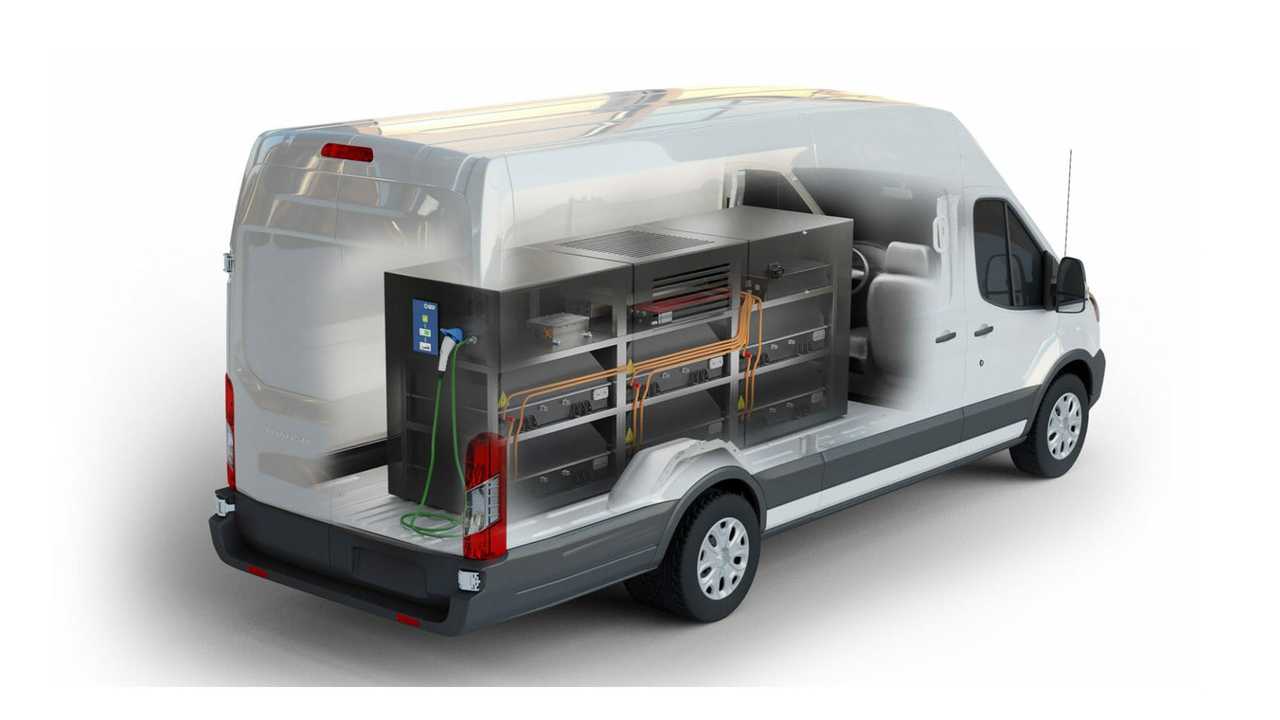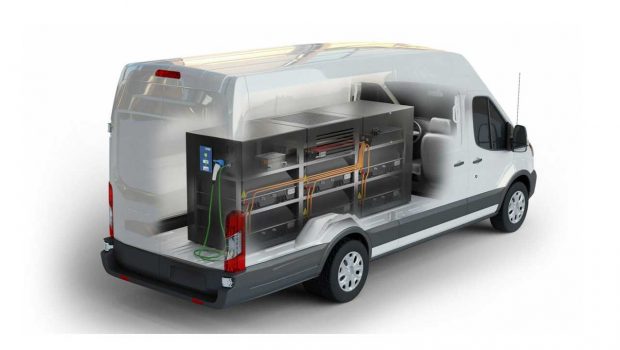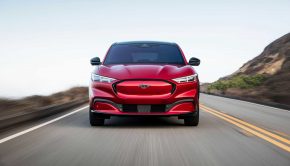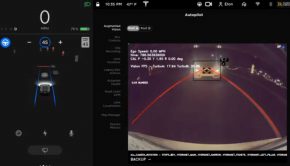Lightning Systems Introduces Mobile DC Fast Charger For Roadside Assistance
Lightning Systems Introduces Mobile DC Fast Charger For Roadside Assistance

Lightning Systems Introduces ‘Lightning Mobile’ Electric Vehicle Charger for Trucks, Vans and Buses
- Lightning Mobile provides roadside and parking lot DCFC (Level 3) charging for electric fleet vehicles, the latest addition to Lightning’s charging and energy systems offerings
- “Power rescue” and “top-up” charging keeps vehicles ready to get jobs done
- DCFC (Level 3) Charging for facilities and lots that only have Level 2 power available and to buffer power to avoid demand charges
LOVELAND, Colo., May 5, 2020 – Lightning Systems, a leading developer of zero-emission powertrains, today announced Lightning Mobile, a mobile direct current fast charger (DCFC) for electric vehicles.
Equipped with 192 kWh of high-energy-density, liquid-cooled DC battery storage in a package designed to be installed in a vehicle or trailer for mobile deployment, Lightning Mobile can be rapidly deployed to provide fast roadside charging to support the operation of electric fleet vehicles. The mobile charger also offers the capability to recharge EVs on their routes, like a fighter aircraft being refueled in-flight, which allows fleets to maximize vehicle uptime.
“Every fleet with electric commercial vehicles will benefit from mobile fast charging,” said Tim Reeser, CEO, Lightning Systems. “Uptime is the name of the game for fleets. While operators will schedule vehicle duties to include depot-based charging, there’s always the chance that a vehicle will need a top-up at another location or en route. There is also often the need for DC Fast Charging at locations or times that may not already be permitted or where demand rates would prohibit fast charging direct from the grid. Lightning Mobile fulfills all these needs.”
Lightning Mobile supports commercial and government fleets that operate electric vehicles, providing roadside charging as a “power rescue” vehicle, buffered DCFC during peak hours, and DCFC for locations that do not yet have Level 3 service permitted or installed.
“A recent survey we conducted confirms that many large fleets intend to electrify a majority of their vehicles over the next five years,” Reeser added. “That equates to thousands of new commercial EVs on the road. These fleets need a solution to ensure they have the charging and support they need for every location and possibility as they ramp up.”
Lightning Mobile is charged from a standard Level 2 AC charger at up to 18kW and can deliver DC Fast Charging at up to 80kW and, optionally, Level 2 AC charging at up to 19.2kW. Lightning Systems designed the system to be installed in its Lightning Electric Transit 350HD cargo van, but the system can be installed in any vehicle or trailer that meets size and weight specifications.
The new mobile electric vehicle charger is specifically designed for commercial electric vehicles, which have high-energy capacities and support DC Fast Charging. The batteries in the Lightning Mobile package share all of the same advanced features as Lightning Systems’ powertrains, including active thermal management for optimum battery performance and longevity, and sophisticated management, safety and telematics/analytics features.
Lightning Mobile also can be used to provide DC Fast Charging from Level 2 AC charging infrastructure, as well as taking advantage of off-peak utility rates by charging Lightning Mobile at low rate times and using it to charge the vehicles at times that suit operations. Rental and leasing options will be available.
Colorado-based Lightning Systems designs and manufactures zero-emission all-electric powertrains for medium- and heavy-duty vehicles, including delivery trucks, shuttle buses, passenger vans, chassis-cab models, and city transit buses. The Lightning products include elegantly integrated all-electric powertrains for the Ford Transit 350HD passenger and cargo vans, Ford E-450 shuttle bus and cutaway models, Ford F-59 step/food van, Ford F-550 cargo trucks and buses, Chevrolet 6500XD Low Cab Forward model, and 30-foot, 35-foot, and 40-foot transit buses. A new powertrain for motor coaches also was recently introduced.








